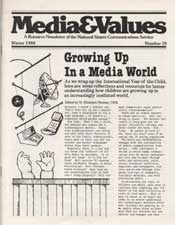M&V Goes to WARC
|
This article originally appeared in Issue# 10
|
UN Plaza, Geneva, Switzerland, October 7, 1979...As I turned the corner toward the UN conference center, the big red sign made my heart skip a beat: "Conference Administrative Mondiale Des Radiocommunications" — the World Administrative Radio Conference — WARC.
For at least five years, I'd been reading about what would be happening here at this time and place. WARC — the every-20-year conference when all the nations of the world come together to decide how to best divide the world's radio spectrum. IMIARC — the treaty-level international meeting where radio engineers create the huge book of "allocation tables" for every use of the airwaves from TV to telephones to ship-to-shore short wave.
WARC '79 — for the first time Third World nations would outnumber the developed ones, bringing to this usually technical gathering the politics of "equal access" and demands for a new world information order.
I was in Europe for a long-awaited vacation (visiting my sister in Germany) but I just couldn't resist hopping the train for Geneva to visit some friends and to spend a day wandering among the 1500 delegates to WARC...talking, sharing, just being there.
It wasn't difficult to get in. Contacts made before I left the U.S. assured me a "presse" pass for my "journal." Armed with that and a list of delegates, I made my way to the paging booth. Fortunately it was morning break so I soon made contact with several U.S. delegates. They were surprised, of course, that an American Catholic sister would choose to spend a day of her European vacation at a technical communications conference!
I tried to explain my interest by citing the growing involvement of women and men religious in the field of communications, especially in policy issues, legislation and regulation. They were intrigued so despite the official US line to downplay the political aspects of the conference, delegates were happy, in private, to discuss what was going on and what the implications were around the world.
So, what was decided at WARC? Not much the day I was there.
It was still early (WARC met for 10 weeks from late September to December 6) and the various committees were just getting organized.
The best part for me was just the opportunity to talk with delegates from all over the world, especially the women. (The U.S. only had four, and 62 men.) I also discovered who knows the most about the day-today happening of these enormously complex conferences — the simultaneous translators'. They have to understand every tiny detail.
But by the time it was over, several important decisions had been reached. One of the more exciting developments was the fairly official recognition by the U.S. of the political implications of spectrum allocation. In what many tern a "major concession," the U.S. agreed to participate in a 1984 conference to plan the use of space services that would guarantee all countries orbital satellite slots in the future.
In other areas, WARC approved a U.S. resolution to expand the AM radio spectrum so that more radio stations can be established, thus increasing opportunities for minority ownership. Let's hope.
On the other hand, WARC sided with developing countries in not expanding the short-wave band which the west had wanted for the Voice of America, Radio Free Europe and Armed Forces Radio. The Third World argued successfully that they needed the space for their own internal communications services, particularly telephones.
Finally, no matter what language the delegates spoke, one message came through loud and clear from WARC '79: Like the oceans and the skies, the airwaves are an international resource, and they must be shared.
One hopes that by the next WARC, in 1999, the nations of the world will have learned how to do it — and peacefully.



